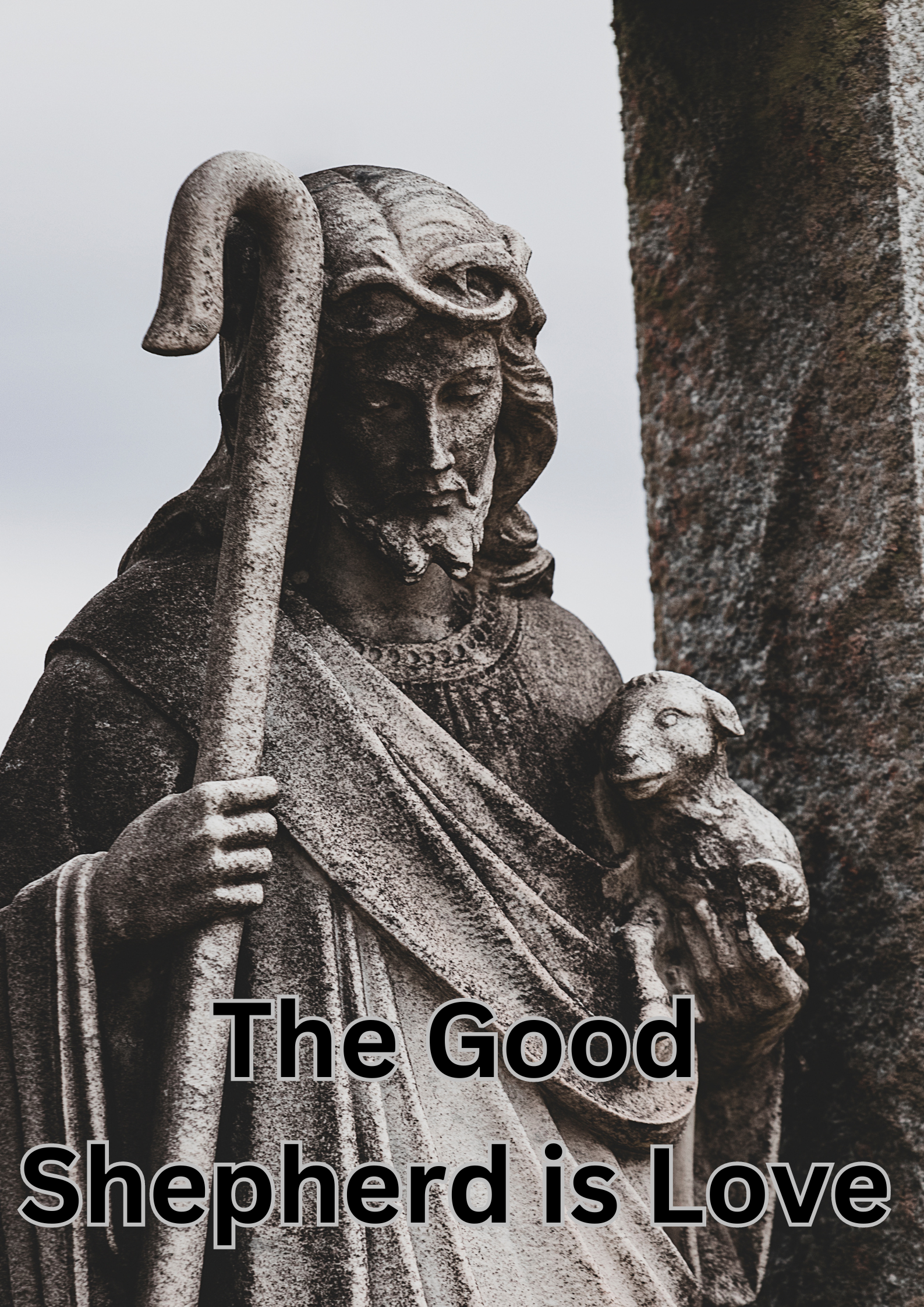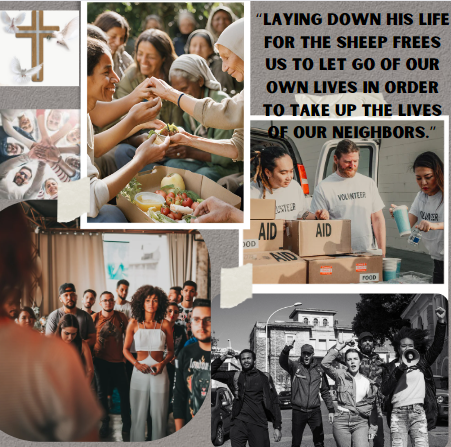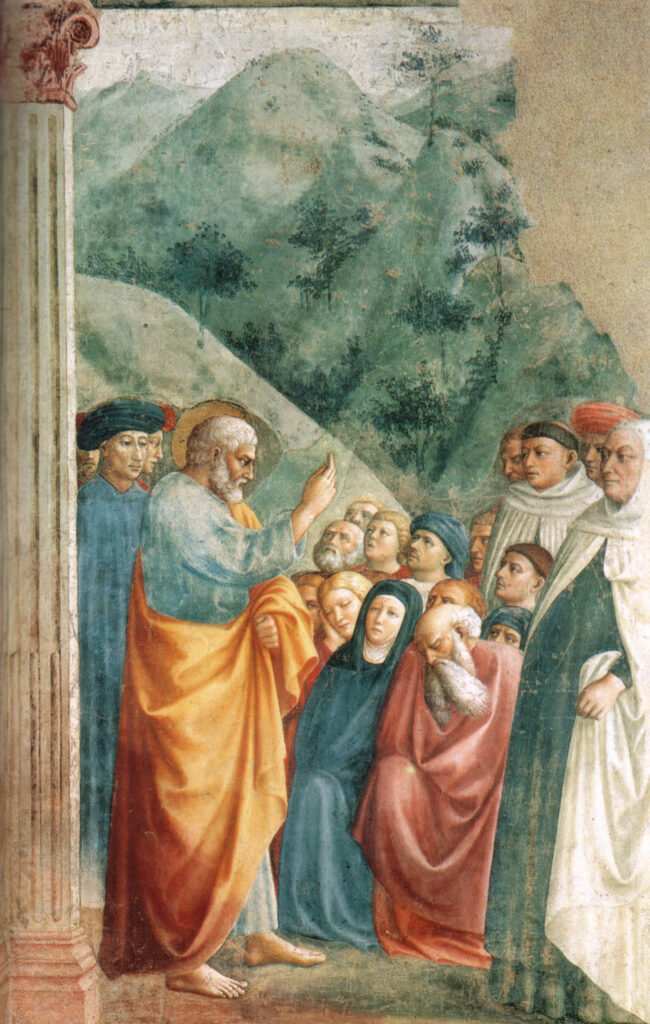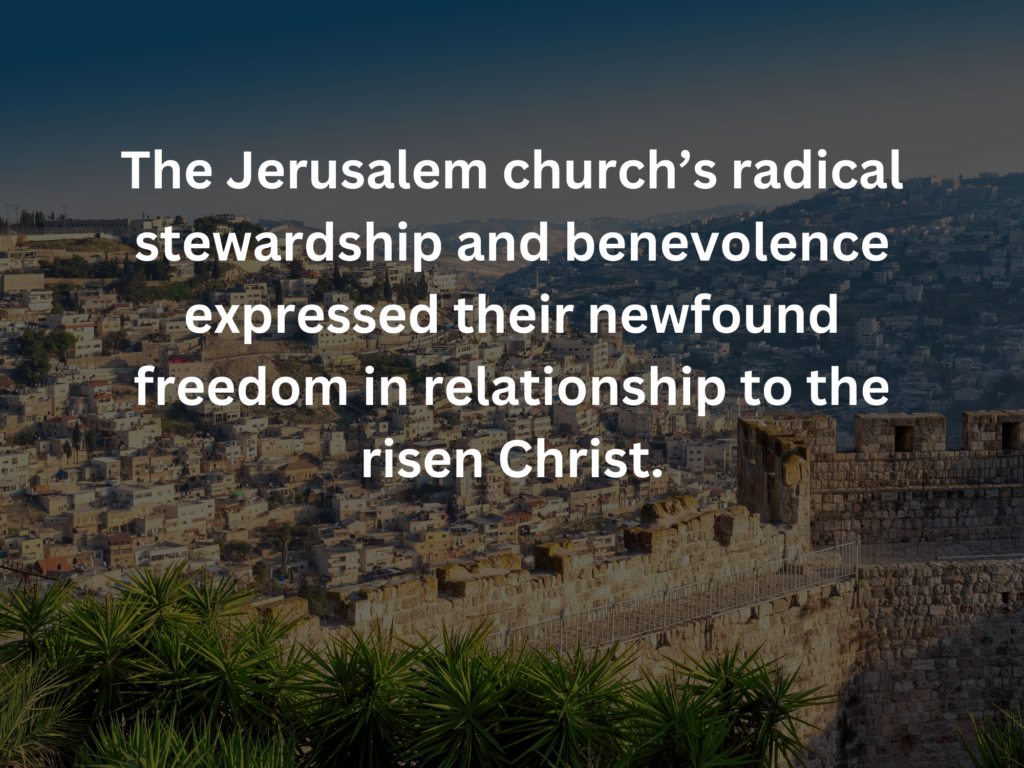Fourth Sunday of Easter, Year B
THE GOOD SHEPHERD IS LOVE
1 John 3:16-24
Fourth Sunday of Easter
Analysis by Mark A Marius
16 We know love by this, that [Jesus Christ] laid down his life for us – and we ought to lay down our lives for one another. 17 How does God’s love abide in anyone who has the world’s goods and sees a brother or sister in need and yet refuses help?
18 Little children, let us love, not in word or speech, but in truth and action. 19 And by this we will know that we are from the truth and will reassure our hearts before him 20 whenever our hearts condemn us; for God is greater than our hearts, and he knows everything. 21 Beloved, if our hearts do not condemn us, we have boldness before God; 22 and we receive from him whatever we ask, because we obey his commandments and do what pleases him.
23 And this is his commandment, that we should believe in the name of his Son Jesus Christ and love one another, just as he has commanded us. 24 All who obey his commandments abide in him, and he abides in them. And by this we know that he abides in us, by the Spirit that he has given us.
“God, full of compassion, decided to give us what we truly need – love in the person of Jesus Christ, the good shepherd who lays down his life for us.”
“Laying down his life for the sheep frees us to let go of our own lives in order to take up the lives of our neighbors.”
DIAGNOSIS: Not sharing the love we know
Step 1: Initial Diagnosis (External Problem): Goods not living up to their name
Goods: We all have some goods. We all desire goods – more goods, better goods. But so often our goods are not for the common good. They are pursued and procured for our own benefit, for our own lives. Once we are satisfied we may share the left overs or give them away when they no longer have value to us. But what about our responsibility to love those who suffer, lack resources, and are in desperate need of something good? Not sharing goods sounds bad, and void of love.
Step 2: Advance Diagnosis (Internal Problem): Hearts not living up to our words about love
We know how to say words that sound like love. We may utter, “love the sinner but not the sin,” without any loving action of welcome or compassion to support it. We know how to affirm our love for all of creation, yet we exploit it for our own purpose. We paint a nice picture with our lip service, but our actions betray us. Our hearts are not in our words. The truth we may affirm is betrayed by our deceitful actions and intent. Our trust is not in how our loving shepherd leads and provides. It’s in the comfort of our own pastures.
Step 3: Final Diagnosis (Eternal Problem): Not living at all
God is greater than our hearts. Which means God has the power to condemn us and our hearts for not obeying God’s commandments. Living apart from God is not living at all.
PROGNOSIS: Loving us to share
Step 4: Initial Prognosis (Eternal Solution): Jesus Christ is love in action
God is greater than the deadly sin in our hearts. Which means that God has the power to change our hearts instead of condemning them as we deserve. And so God, full of compassion, decided to give us what we truly need – love in the person of Jesus Christ, the good shepherd who lays down his life for us. God resurrecting his Son to new life is an action through which we now know love.
Step 5: Advanced Prognosis (Internal Solution): Hearts full of the Holy Spirit
Before we abide in God, the good Shepherd calls us, and in doing so gives us the Holy Spirit to abide in us – in our hearts. Filled with this Holy love our hearts receive the faith necessary to trust the Truth that is Christ. Our hearts now long for all the goods God gives – the gifts of grace, forgiveness, compassion.
Step 6: Final Prognosis (External Solution): Meeting needs is good
New hearts are where loving action is born. Laying down his life for the sheep frees us to let go of our own lives in order take up the lives of our neighbors. God’s command to love one another is good and possible when we follow the Good Shepherd’s lead. The Love we know flows from our faith that is latching on to Christ’s death and resurrection. The goods of the world are now reclassified as the means by which we care for others and creation. And when these means are coupled with God’s grace it is reckoned as right and good. So we share the means of grace with the flock, those in our midst and even those who have wondered off. In fact the means are anything but mean, as the grace of God produces great joy in the care and redemption of all that God has made.



